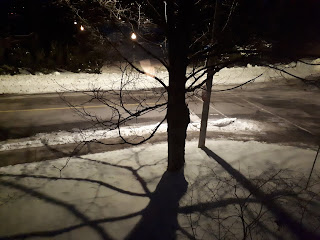At the moment the world is on tenterhooks because of the Coronavirus. Of all my books this is the only one where an unexpected illness strikes. Why? Well probably because nobody likes to think about illness unless they have to.
Click here for my books and author page
As Woody Allan once said: If you want to make God laugh, tell him about your plans. Not that any of my plans were desperate or that important in the scheme of things, but I was due to be cruising around Japan at the end of March on the very ship that is now quarantined in the port at Yokohama as more and more members of its crew and passengers contract the Coronavirus.
On top of that, the British citizens who were flown out of Wuhan, the centre of the epidemic, have been quarantined in hospital property only 12 miles away from where I live.
And then, of course, there is my daughter-in-law, who is Chinese. She and my little Eurasian granddaughter spent the Chinese New Year in China with family and friends. My son, who had to work, stayed at home in Hong Kong, which was just as well as he has been their only contact with the outside world for the past 14 days. Although they were very far away from the epicentre of the Coronavirus they were still required to self-quarantine when they returned home, and my daughter-in-law has only today been allowed to return to work.
My granddaughter is still at home because her school has been closed since Christmas and will not reopen until 4 March at the earliest. Also most of her friends have either left Hong Kong for a perceived safety with family elsewhere, or have not returned from the Christmas holidays they were celebrating somewhere else in the world, so with no school and few friends to play with, it is fortunate that she loves to draw, write, make things, help cook, and also do the homework she receives every week by email.
From a different perspective, however, some of what is happening is very interesting. My son, who works in change management in businesses in Hong Kong, is having to adapt his own work practice whilst also helping other people to cope with working from home. Culturally, home working is not the norm in Hong Kong and this, together with the very limited size of its family apartments, means that the forced confinement is having a deep psychological effect on many people. Apartments in Hong Kong are on average the smallest in the world (484 sq ft). Many of these are homes to more than three people. As a comparison, the average one-bed flat size in Manhattan, New York, is 716 sq ft while in London it is 550 sq ft. Because I regularly help edit his various presentations and papers, it means I am able to be part of the whole thinking around the effects of Coronavirus on business around the world...not something I would have chosen given how it is affecting and frightening so many people, but interesting nevertheless.
So here I am, living in a coastal village in the North West of England, miles away from any major centre, in a place of clean beaches and fresh, unpolluted air, and yet, because of globalisation, I am still caught up in the world-wide effects of the Coronavirus. It is a strange, strange world.
Now all I have to do is to send the medical face masks I've managed to buy in the UK over to my family in Hong Kong because there the shops have sold out altogether, and without a mask nobody goes out! In usual circumstances China makes 20 million face masks a day and Chinese people use them regularly both as a protection against traffic pollution and when they have a cold or cough which they don't want to pass onto other people. Now, however, production has fallen and people are panic buying. Fortunately we still have plenty in the UK where wearing them is not the norm at all. Who is to say when that will change, however. In the meantime we can spare some where they are needed most.
In my son's words at the end of his recent advisory leaflet to Hong Kong employees working from home for the first time: until it's over and we can all relax, work well and stay healthy.
So here I am, living in a coastal village in the North West of England, miles away from any major centre, in a place of clean beaches and fresh, unpolluted air, and yet, because of globalisation, I am still caught up in the world-wide effects of the Coronavirus. It is a strange, strange world.
Now all I have to do is to send the medical face masks I've managed to buy in the UK over to my family in Hong Kong because there the shops have sold out altogether, and without a mask nobody goes out! In usual circumstances China makes 20 million face masks a day and Chinese people use them regularly both as a protection against traffic pollution and when they have a cold or cough which they don't want to pass onto other people. Now, however, production has fallen and people are panic buying. Fortunately we still have plenty in the UK where wearing them is not the norm at all. Who is to say when that will change, however. In the meantime we can spare some where they are needed most.
In my son's words at the end of his recent advisory leaflet to Hong Kong employees working from home for the first time: until it's over and we can all relax, work well and stay healthy.


























